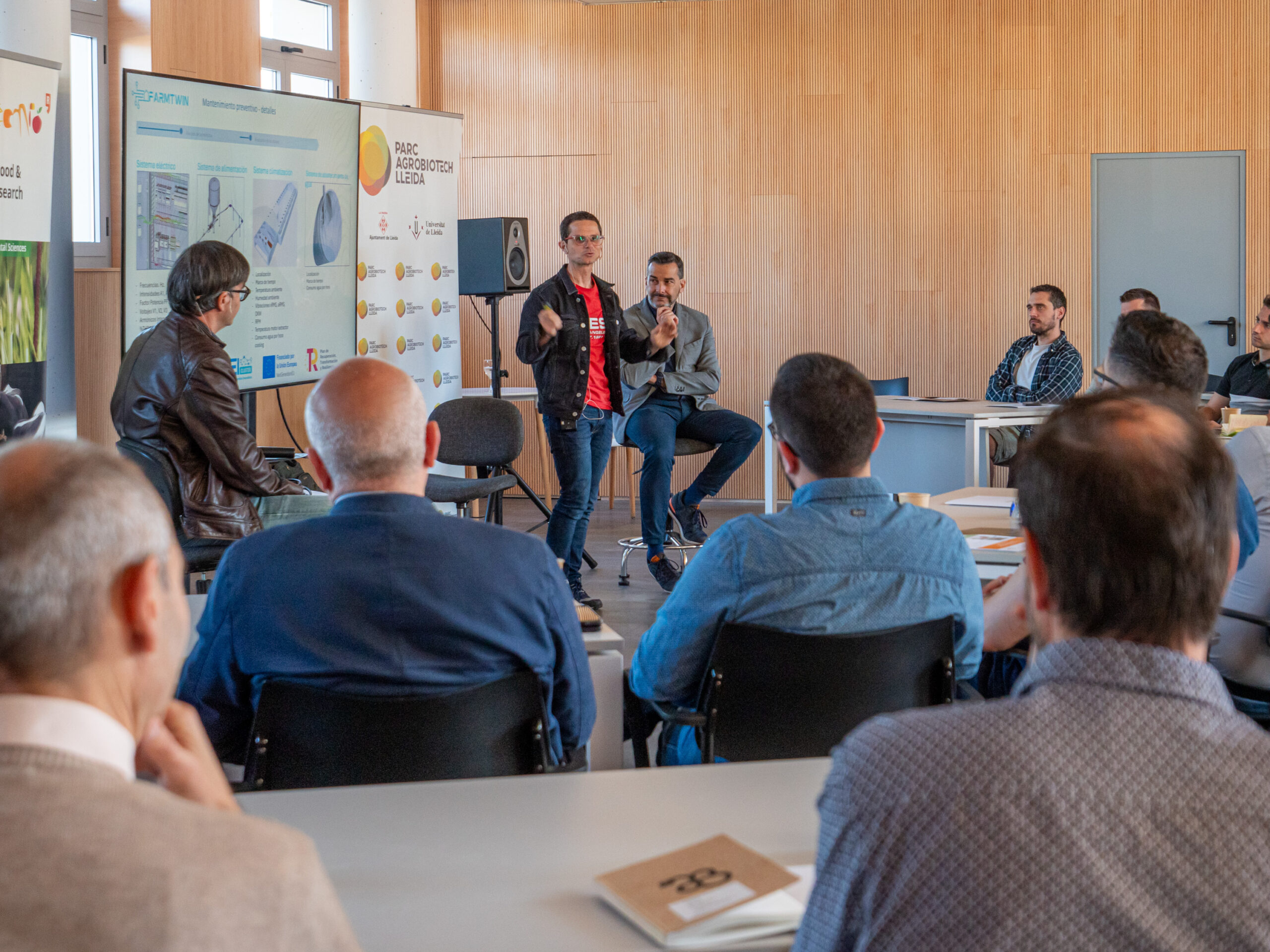The incorporation of new technologies is becoming increasingly relevant in the pig sector. Today, at the second Breakfast4inno organised by Parc Agrobiotech Lleida and Agrotecnio, two speakers from the region discussed how digitalisation is transforming the pig industry thanks to the so-called “digital twins”. Breakfast4inno is a cycle of innovation breakfasts created to bring together people from the world of research and industry around innovative topics in the agri-food sector.
A digital twin is a virtual replica made in the image and likeness of a product or a facility, such as a pig farm, which incorporates real-time data that can be captured by sensors or other technologies. Once the information is collected, it is processed through Artificial Intelligence to obtain a “live” representation. This technology makes it possible to detect problems in advance and solve them more quickly, as they can warn of incidents or anomalies in operation, improving energy efficiency, simplifying maintenance or reducing costs.
José Ángel Fernández, IT engineer and CIO of Opp Group, spoke alongside Joan del Sol Queralt, agronomist and founding partner of Prodes Gestión de Obras to explain the “FarmTwin” project, which proposes an innovation in the processes of asset management and environmental management in pig farms. FarmTwin works on the definition of critical systems on farms to establish predictive models and offer useful tools for the management team. “With this project we are looking for efficiency,” said Fernández, who added that “to make 1 kg of meat, producers will need less feed and this means a great economic return”. OPP Group officials explained during the session that thanks to the introduction of this technology on farms, a business group managing 4 million pigs could save around 30 kilos of feed per animal per year, i.e. 120 million kilos of feed, while improving the genetic expression of the animals.
For his part, Joan del Sol Queralt pointed out that “digital twins on farms pose a new, much more efficient farm model”. Thanks to this new technology, unthinkable just two years ago, farm jobs will change, “making them more attractive” according to the speakers at the conference.
Breakfast4inno will continue on a monthly basis through 2024. The next session will take place on 6 June and will address the potential of plants created with new genomic techniques.
More information:

